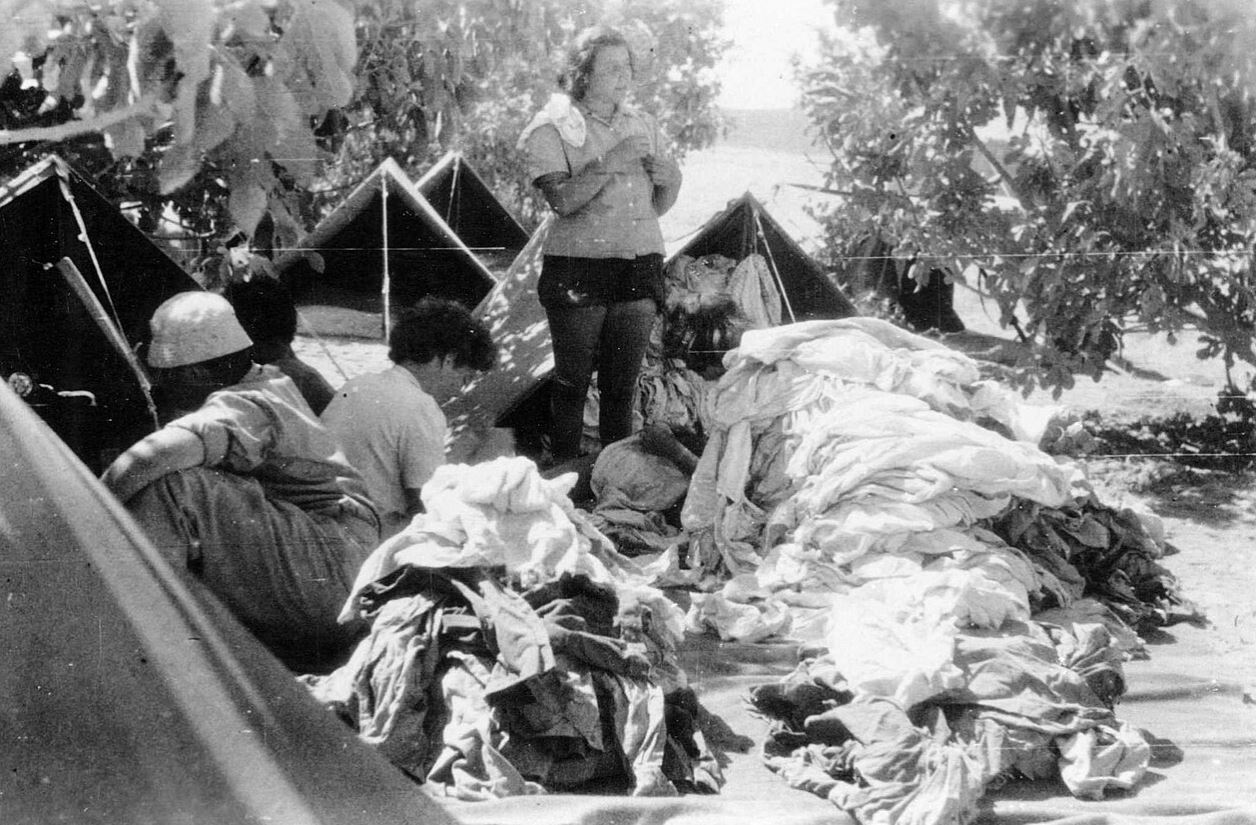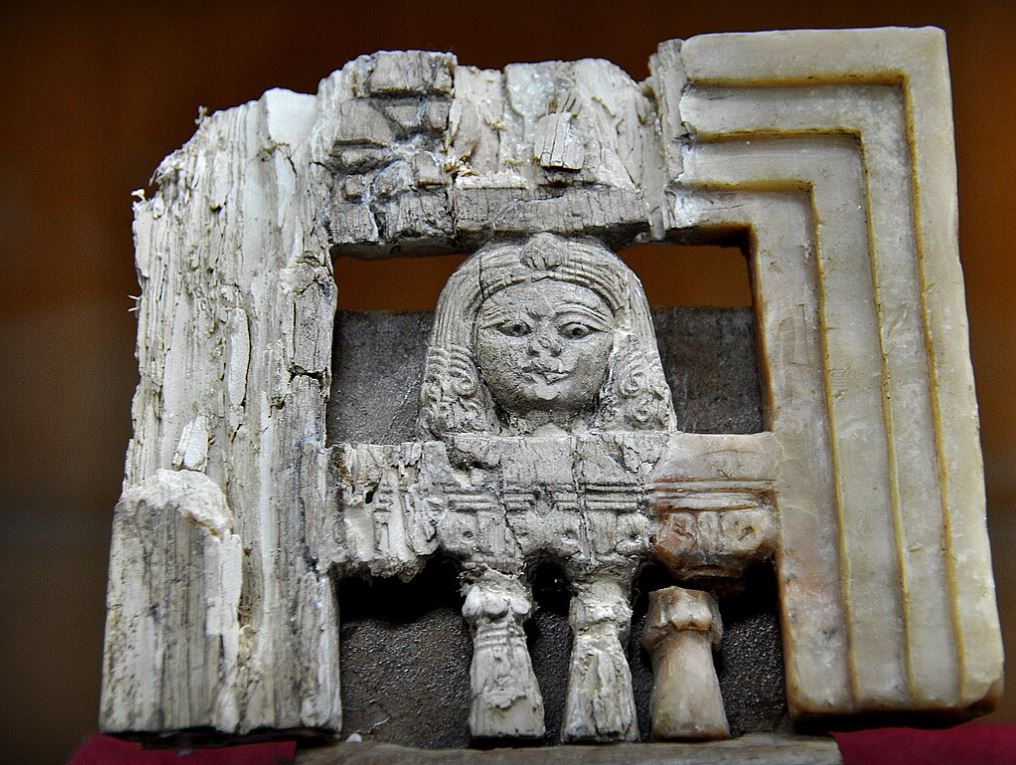Bava Batra 175b
הוֹצִיא עָלָיו כְּתַב יָדוֹ שֶׁהוּא חַיָּיב לוֹ – גּוֹבֶה מִנְּכָסִים בְּנֵי חוֹרִין.
If one presents to a debtor a document in the handwriting of the debtor stating that he owes money to him, but without witnesses signed on the document, the creditor can collect only from unsold property.
עָרֵב הַיּוֹצֵא לְאַחַר חִיתּוּם שְׁטָרוֹת – גּוֹבֶה מִנְּכָסִים בְּנֵי חוֹרִין.
In the case of a guarantor whose commitment emerged after the signing of the promissory note, the creditor can collect the sum only from unsold property of the guarantor.
מַעֲשֶׂה וּבָא לִפְנֵי רַבִּי יִשְׁמָעֵאל, וְאָמַר: גּוֹבֶה מִנְּכָסִים בְּנֵי חוֹרִין. אָמַר לוֹ בֶּן נַנָּס: אֵינוֹ גּוֹבֶה לֹא מִנְּכָסִים מְשׁוּעְבָּדִים וְלֹא מִנְּכָסִים בְּנֵי חוֹרִין.
The mishna relates: An incident occurred where such a case came before Rabbi Yishmael, and he said: The creditor can collect the sum from unsold property of the guarantor, but not from liened property that he has sold to others. Ben Nannas said to Rabbi Yishmael: The creditor cannot collect the sum from the guarantor at all, not from liened property that has been sold, nor from unsold property.
אָמַר לוֹ: לָמָּה? אָמַר לוֹ: הֲרֵי הַחוֹנֵק אֶת אֶחָד בַּשּׁוּק, וּמְצָאוֹ חֲבֵירוֹ וְאָמַר לוֹ ״הַנַּח לוֹ [וַאֲנִי אֶתֵּן לָךְ]״ – פָּטוּר, שֶׁלֹּא עַל אֱמוּנָתוֹ הִלְוָהוּ. אֶלָּא אֵיזֶה הוּא עָרֵב שֶׁהוּא חַיָּיב? ״הַלְוֵהוּ, וַאֲנִי נוֹתֵן לָךְ״ – חַיָּיב, שֶׁכֵּן עַל אֱמוּנָתוֹ הִלְוָהוּ.
Rabbi Yishmael said to him: Why not? Ben Nannas said to him: If one was strangling someone in the marketplace, demanding repayment of a loan, and another person found him doing so and said to the attacker: Leave him alone and I will give you the money he owes, the person who intervened is exempt from paying, as the creditor did not loan the money in the first place based on his trust of the one who intervened. Rather, who is a guarantor who is obligated to repay the loan he has guaranteed? One who tells the creditor before the loan takes place: Lend money to him, and I will give you the repayment, as in that case the creditor did loan the money based on his trust of the guarantor.
וְאָמַר רַבִּי יִשְׁמָעֵאל: הָרוֹצֶה שֶׁיַּחְכִּים – יַעֲסוֹק בְּדִינֵי מָמוֹנוֹת; שֶׁאֵין לָךְ מִקְצוֹעַ בַּתּוֹרָה יוֹתֵר מֵהֶן, וְהֵן כְּמַעְיָין הַנּוֹבֵעַ. וְהָרוֹצֶה שֶׁיַּעֲסוֹק בְּדִינֵי מָמוֹנוֹת – יְשַׁמֵּשׁ אֶת שִׁמְעוֹן בֶּן נַנָּס.
And Rabbi Yishmael thereupon said: One who wants to become wise should engage in the study of monetary law, as there is no greater discipline in the Torah, and it is like a flowing spring. And, he added, one who wants to engage in the study of monetary law should attend to, i.e., become a disciple of, Shimon ben Nannas.
גְּמָ׳ אָמַר עוּלָּא: דְּבַר תּוֹרָה – אֶחָד מִלְוֶה בִּשְׁטָר, וְאֶחָד מִלְוֶה עַל פֶּה – גּוֹבֶה מִנְּכָסִים מְשׁוּעְבָּדִים. מַאי טַעְמָא? שִׁעְבּוּדָא דְּאוֹרָיְיתָא. וְאֶלָּא מַה טַּעַם אָמְרוּ מִלְוֶה עַל פֶּה אֵינוֹ גּוֹבֶה אֶלָּא מִנְּכָסִין בְּנֵי חוֹרִין? מִשּׁוּם פְּסֵידָא דְלָקוֹחוֹת.
GEMARA: Ulla says: By Torah law, a creditor, whether in the case of a loan with a promissory note or the case of a loan by oral contract, can collect the debt from liened property that has been sold by the debtor subsequent to his receiving the loan. What is the reason for this? The property of a debtor at the time of the loan, even an oral loan, is liened by Torah law. And what is the reason the Sages said that one who gives a loan by oral contract can collect the debt only from unsold property? Because of the loss that would be incurred by purchasers of land if the seller’s creditors could seize the land they have purchased.
אִי הָכִי, מִלְוֶה בִּשְׁטָר נָמֵי! הָתָם, אִינְהוּ נִינְהוּ דְּאַפְסִידוּ אַנַּפְשַׁיְיהוּ.
The Gemara asks: If so, a loan with a promissory note should also not be collected from purchasers of property, as this would cause them a loss. The Gemara answers: There, in the case of a loan recorded in a promissory note, the purchasers, who neglected to investigate the financial status of the seller before purchasing land from him, brought the loss upon themselves. By contrast, loans by oral contract are often impossible to discover, even with a thorough investigation.
וְרַבָּה אָמַר: דְּבַר תּוֹרָה – אֶחָד מִלְוֶה בִּשְׁטָר וְאֶחָד מִלְוֶה עַל פֶּה – אֵינוֹ גּוֹבֶה אֶלָּא מִנְּכָסִים בְּנֵי חוֹרִין. מַאי טַעְמָא? שִׁעְבּוּדָא לָאו דְּאוֹרָיְיתָא. וּמַה טַּעַם אָמְרוּ מִלְוֶה בִּשְׁטָר גּוֹבֶה מִנְּכָסִים מְשׁוּעְבָּדִים? כְּדֵי שֶׁלֹּא תִּנְעוֹל דֶּלֶת בִּפְנֵי לֹוִין.
And Rabba says: By Torah law, a creditor, whether in the case of a loan with a promissory note or the case of a loan by oral contract, can collect the debt only from the debtor’s unsold property. What is the reason for this? The property of a debtor is not liened by Torah law. And what is the reason the Sages said that one who gives a loan with a promissory note can collect the debt from liened property that has been sold? So as not to lock the door in the face of potential borrowers. If one could not collect a debt by taking liened property that has been sold, people would be hesitant to put their money at risk by lending it.
אִי הָכִי, מִלְוֶה עַל פֶּה נָמֵי! הָתָם לֵית לֵיהּ קָלָא.
The Gemara asks: If that is so, that there is a desire to encourage people to lend money by granting greater power of collection to creditors, a loan by oral contract should also be collectible from liened property that has been sold. The Gemara answers: There, in the case of a loan by oral contract, it has no publicity associated with it, so that purchasers often cannot find out about it, even after a thorough investigation, and it would be an unfair burden on them to have the property purchased by them seized in such cases.
וּמִי אָמַר רַבָּה הָכִי? וְהָא אָמַר רַבָּה: גָּבוּ קַרְקַע – יֵשׁ לוֹ. גָּבוּ מָעוֹת – אֵין לוֹ!
The Gemara asks: And did Rabba really say this? But doesn’t Rabba say, in the case of a firstborn son, that if he and his brothers collected a debt from land, he has the right to receive a double portion of that payment, but if they collected a debt from money, he does not have the right to a double portion? A firstborn son is entitled to a double share of inheritance of any property that was owned by his father at the time of his death, but not to profits or income that accrue to the estate after his death. If a debt owed to the father is collected from land after his death, Rabba said that the firstborn is entitled to a double portion, indicating that the land was considered in the father’s possession even before he died, which indicates that Rabba holds that the property of a debtor is liened to a creditor by Torah law.
וְכִי תֵּימָא אֵיפוֹךְ דְּרַבָּה לְעוּלָּא וּדְעוּלָּא לְרַבָּה, וְהָא אָמַר עוּלָּא: דְּבַר תּוֹרָה, בַּעַל חוֹב דִּינֵיהּ בְּזִבּוּרִית!
And if you would say: The opinions as they were cited earlier are attributed incorrectly, and it is necessary to reverse the two opinions, and exchange the opinion of Rabba for that of Ulla, and that of Ulla for that of Rabba, there is a difficulty: But doesn’t Ulla say elsewhere: By Torah law the halakha of a creditor is to collect his debt only from inferior-quality land?
אֶלָּא רַבָּה – טַעְמָא דִּבְנֵי מַעְרְבָא קָאָמַר, וְלֵיהּ לָא סְבִירָא לֵיהּ.
The Gemara resolves the contradiction between Rabba’s two statements: Rather, Rabba was stating an explanation for the opinion of the people of the West, Eretz Yisrael, cited earlier (125a), but he himself does not hold accordingly, as he holds that a firstborn son is not entitled to a double portion of a debt collected from land.
רַב וּשְׁמוּאֵל דְּאָמְרִי תַּרְוַיְיהוּ: מִלְוֶה עַל פֶּה – אֵינוֹ גּוֹבֶה לֹא מִן הַיּוֹרְשִׁין וְלֹא מִן הַלָּקוֹחוֹת. מַאי טַעְמָא? שִׁעְבּוּדָא לָאו דְּאוֹרָיְיתָא.
The Gemara continues to discuss the issue of the extent of liens on a debtor’s property. Rav and Shmuel both say: In the case of a loan by oral contract, the creditor can collect the debt only from the one who took the loan, but not from the heirs of the debtor after his death, and not from purchasers of his property. What is the reason for this? They maintain that the property of a debtor is not liened by Torah law.
רַבִּי יוֹחָנָן וְרַבִּי שִׁמְעוֹן בֶּן לָקִישׁ דְּאָמְרִי תַּרְוַיְיהוּ: מִלְוֶה עַל פֶּה – גּוֹבֶה בֵּין מִן הַיּוֹרְשִׁין, וּבֵין מִן הַלָּקוֹחוֹת. מַאי טַעְמָא? שִׁעְבּוּדָא דְּאוֹרָיְיתָא.
Rabbi Yoḥanan and Rabbi Shimon ben Lakish both say: In the case of a loan by oral contract, the creditor can collect the debt both from the heirs of the debtor after his death and from the purchasers of his property. What is the reason for this? They maintain that the property of a debtor is liened by Torah law.
מֵיתִיבִי: הַחוֹפֵר בּוֹר בִּרְשׁוּת הָרַבִּים, וְנָפַל עָלָיו שׁוֹר וַהֲרָגוֹ – פָּטוּר. וְלֹא עוֹד, אֶלָּא שֶׁאִם מֵת הַשּׁוֹר – יוֹרְשֵׁי בַּעַל הַבּוֹר חַיָּיבִים לְשַׁלֵּם דְּמֵי שׁוֹר לִבְעָלָיו!
The Gemara raises an objection to the opinion of Rav and Shmuel from a baraita (Tosefta, Bava Kamma 6:2): If one was digging a pit in the public domain, and an ox fell on him and killed him as he was in the pit, the owner of the ox is exempt from paying for the damage caused, as it is the one who dug the pit who is at fault. Moreover, if it occurred that the ox died as a result of the fall, the heirs of the owner of the pit are liable to pay the value of the ox to its owner. Compensation for damages is comparable to a loan by oral contract, and yet the baraita states that the heirs of the culpable party must pay it.
אָמַר רַבִּי אִלְעָא אָמַר רַב: בְּשֶׁעָמַד בַּדִּין.
Rabbi Ela says that Rav says: The baraita is discussing a case in which the one who dug the pit stood trial for the damage before he died, and once judgment is rendered by a court, the resulting financial liability is comparable to a loan with a promissory note.
וְהָא ״הֲרָגוֹ״ קָתָנֵי! אָמַר רַב אַדָּא בַּר אַהֲבָה: שֶׁעֲשָׂאוֹ טְרֵפָה.
The Gemara objects: But it is taught in the baraita that the ox killed him by falling on him. How then can one say that he stood trial? Rav Adda bar Ahava says: The baraita does not mean that the ox killed him instantly, but that it rendered him one who has a wound that will cause him to die within twelve months [tereifa], and there was enough time before his death to try him and deem him liable to pay for damages.
וְהָא אָמַר רַב נַחְמָן, תָּנֵי תַּנָּא: ״מֵת וּקְבָרוֹ״! הָתָם – דְּיָתְבִי דַּיָּינֵי אַפּוּמָּא דְבֵירָא, וְחַיְּיבוּהוּ.
The Gemara objects that there is a different version of the baraita according to which this interpretation is not possible: But doesn’t Rav Naḥman say that a certain tanna taught the baraita with a different formulation, stating that the one who dug the pit died from the impact of the ox and the ox in effect buried him in the ground at the bottom of the pit? In this scenario it would be impossible to take the one who dug the pit to court to stand trial. The Gemara answers: There, according to that second version, it is discussing a case where judges sat at the opening of the pit and deemed liable the one who dug the pit to pay for the damage before he died.



























